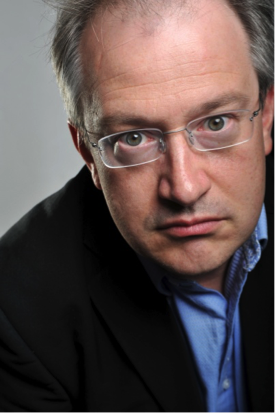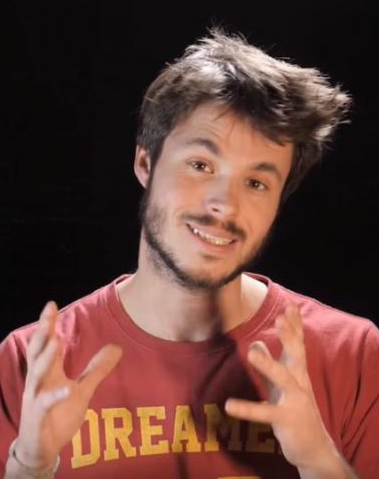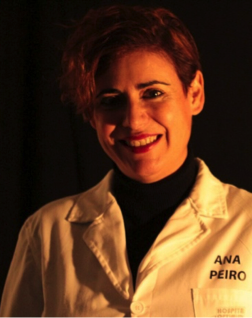PERFORM Conference
Program at a glance
Thursday 14 June 2018
UNESCO headquarters – Paris, 125 Avenue de Suffren
Official language: all talks will be simultaneously translated in English, French and Spanish for the duration of the first day.
| 11:50 | TALK SHOW: the PERFORM Experience
How can performing arts change the way we study, learn and teach STEM? Students, teachers, early career researchers who took part in the PERFORM project talk about their experiences. Céline Martineau, program coordinator, TRACES Association, France; Daniel Carrillo Zapata, researcher, University of Bristol, UK; David Price, Science Communicator, Science Made Simple, UK; Helena González, science communicator, Big Van Science, Spain; Keila González Duval, student, IES Moises Broggi, Spain; Marta Pulido, postdoctoral researcher IDIBAPS, Spain; Mathilde Telegone, teacher, Lycée professionnel Pierre- Mendès, France; Ms. Rachel Beddoes, teacher, Castle School, UK Room II |
| 13:00 | Lunch – Ground floor – Salle des pas perdus |
| 14 :00 | INTERACTIVE SESSION: drama-based activities and vocations in stem careers – Room II
How can we fully understand the stereotypes, barriers, and concerns of secondary school students about STEM careers? And how can we dismantle them? During this seminar, the key ideas of PERFORM toolkit will be presented on how to use drama-based activities to raise new scientific vocations. We will analyze some successful examples to implement Stand Up Comedy, Busking and Impro theater with young people to talk and reflect about STEM and the values embedded in RRI (Responsible Research and Innovation). We will listen to teacher’s and researchers’ experiences and discuss how this method can raise new scientific vocations and how it can be efficiently implemented in formal education. David Price, science communicator, Science Made Simple, UK; Eva Corrons, teacher, IES Consell de Cent, Spain; (Coordinated by The Big Van Science) |
| 15 :00 |
PANEL DISCUSSION: Perform: Building a reflexive understanding of research – Room II This session will highlight key points of learning from the unique training programs that were developed for early career researchers across the UK, Spain and France for PERFORM. As well as providing an introduction to creative approaches to public engagement, the training programs aimed to create space for early career researchers to develop a holistic and reflexive understanding of research, with an emphasis on Responsible Research and Innovation in context. We will hear from researchers and speakers who took part in the program and present highlights from a new set of resources for researchers who are interested in building reflexivity into their work and exploring performance methods for public and schools engagement. Briana Bombana, PhD student, Department of Geography, Autonomous University of Barcelona – UAB, Spain; Daniel Carrillo Zapata, PhD Robotics, University of Bristol, UK; Eduard Aibar, researcher, Open University of Catalonia – UOC, Spain; Ellie Hart, researcher, University of Bristol, UK; Luca La Volpe, researcher, Université Pierre et Marie Curie – UPMC, France; Martha Crean, coordinator PERFORM project, University of Bristol, UK (Coordinated by University of Bristol).
|
| 16:00 | Cofee break |
| 16:30 | PANORAMA TALK: innovating STEM Education in Europe – Room II
A European panorama of projects that are innovating the way we learn and teach Science and Technology in Europe. From the Marie Skłodowska Curie Actions and the training experiences for early career researchers to the projects who combine the paradigm of Responsible Research and Innovation with Science Education a wide panorama of experiences is presented. Àgueda Gras Velázquez – Science Programme Manager – Scientix project; Alain Sarkissian – Researcher at LATMOS / UVSQ / CNRS. Edu Artic; Annette Klinkert – Project coordinator – NUCLEUS project; Josep Carreras – Educator and science communicator, Living Lab for Health at IrsiCaixa. Xplore Health; Manel Laporta Grau – Assistant Policy Officer and communication’s coordinator at the Marie Skłodowska-Curie Actions Unit’s – European Commission Maria Kozlak – MSCA fellow, Institut Curie in Paris; Marie-Agnès Bernardis – Chargée de mission Universcience/site Cité des sciences – Hypatia project; Marta Cayetano – Communication Officer. HEIRRI project; Xoana Troncoso – Former MSCA fellow, European Affairs Officer at Service Recherche Partenariale et Propriété Intellectuelle -SR2PI, École Polytechnique, Paris |
| 18:00 | Cocktail – UNESCO cafeteria – 7th floor |
Friday 15 June 2018
UNESCO headquarters – Paris, 125 Avenue de Suffren
Official Language: During the second day the official language will be English but during the parallel Workshop from 10:00 to 12:00 that will be delivered each in one language: French, Spanish and English
| 09:30 |
POSTERS ALIVE! – Room Miró I Enjoy a coffee while perusing posters that showcase innovative projects within education! Alain Sarkissian – Edu-Artic: EDU-ARTIC project explored; Adrienn Pap and Àgueda Gras Velázquez – Scientix: The 2018 STEM Discovery Week; Frédérique Carcaillet – Université de Montpellier, France: when researchers, students and pupils communicate science with stop-motion animation movies; Gul Karaevli – Korkmaz Yigit Anatolian High School, Turkey – COMPASS project: Creating Online Materials & Products At STEM Subjects; Josep Carreras – Xplore Health: Xplore Health, bridging the gap between RRI and STEM education; Hatice Kirmaci – Korkmaz Yigit Anatolian High School, Turkey-ART: the innovative way of reaching science; Lina Alexandra Gómez – University of Antioquia, Colombia: Strategies for the generation of scientific vocations in basic and secondary students in Medellin-Colombia Marie-Agnès Bernardis – Hypatia: Make science education more gender inclusive; Marta Cayetano – HEIRRI: HEIRRI project, teaching and learning Responsible Research and Innovation; Pierre Echard – Jet Propulsion Theatre: Sparking the love for science through theatre |
|
10:00
|
Let’s PERFORM. Two hours of interactive seminars geared towards helping you set up a performance (parallel sessions in French, Spanish and English)
Stand-Up Comedy to laugh with science – The Big Van Science (in Spanish) Room Miró II What does not kill us can only make us stronger! Science Busking, an insiders’ guide to taking science out onto the streets – Science Made Simple (in English) Room II Improvise your science! – Groupe TRACES (in French) Room Miró III Teacher training interactive workshop. Perform: bringing philosophy and performance into your science classroom University of Bristol (in English) Room III |
| 12:00 | Lunch |
| 13:00 |
Your voices. Starting from the workshop experience joined in the morning the participants will share their thoughts on how to develop performances that include the values of Responsible Research and Innovation and embed the human dimension of Science and Technology processes. |
| 14:00 | IMPLEMENTING PERFORM – Room II
How to set up the PERFORM experiences in your classroom? Casimiro Vizzini, UNESCO and Isabel Ruiz Mallén, Open University of Catalonia – UOC |
The Conference will close at 15:00 on the 15th of June 2018
Dowload the Conference Programm



